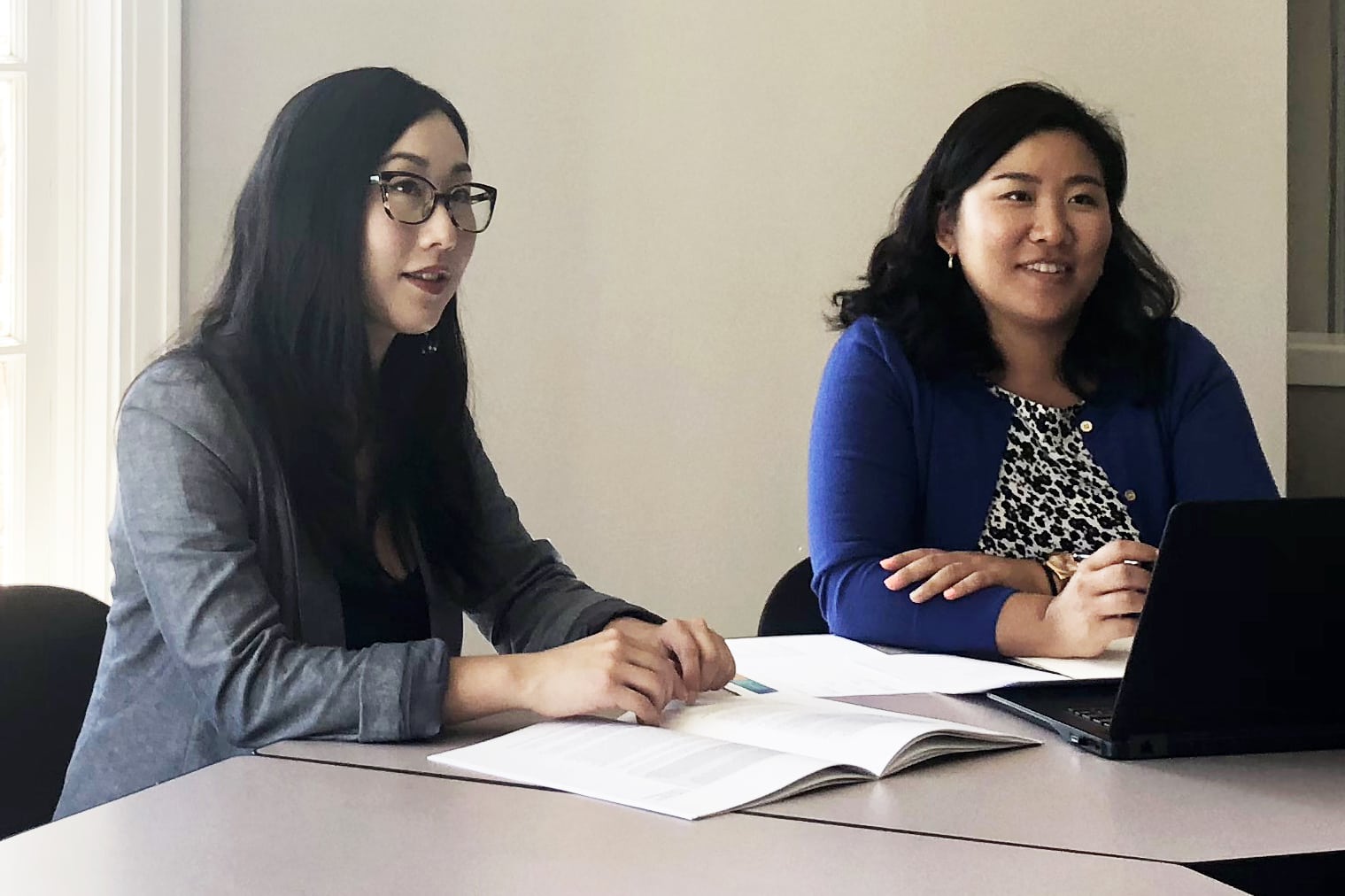

This summer, Harder+Company hosted two UC Berkeley master’s in public health dual degree graduate students, Donna Leong and Young Kim-Parker, for a 12-week full-time internship. Donna is entering her second year in the master of city planning/master of public health program, and Young is entering her third year in the master of social welfare/master of public health program. Their goals for the internship were to strengthen their public health knowledge; develop new practice-based skills; and grow their leadership and professional skills. To wrap up their time with us, Donna and Young write here about how they integrated their prior community- and classroom-based experience with their internship at Harder+Company:
We both entered the field of public health because of its emphasis on health equity and its examination of health disparities. As public health graduate students at UC Berkeley, our training not only focuses on theories of health equity, but also how these concepts translate into practice. Our graduate program includes a summer internship where we step out of the classroom and into real-world applications of public health. Joining Harder+Company this summer has offered a unique perspective of the essential role of applied research and evaluation consulting in public health and the social sector more broadly. With no prior consulting experience, the biggest questions entering the internship were:
• What does equity in community research consulting look like in practice?
• How does social sector evaluation help streamline decision-making?
• Where does our public health training fit into this work?
Twelve weeks and fifteen projects later, here’s what we’ve learned:
An equity lens can be built into each phase of the consulting process, and this approach offers opportunities for reflection.
From assessing proposals, through instrument development, data collection, analysis, and writing the final report—at each step, we have seen how equity is integrated into the consulting process by asking whose voices are included, what outcomes are being measured, and whose lives will be most impacted.
This approach creates space for us to consider our own role in how we engage clients and community members, and what assumptions we bring with us in our work. By intentionally integrating an equity lens into consulting, we believe it contributes to making the work rigorous. We can see how, as consultants, we assist clients and organizations to identify their strengths, assess their impact, and support their goals to help the communities they serve.
Community research and evaluation provide invaluable support to organizations to help prioritize resources.
Given the nature of consulting in the social sector, all of our projects were on behalf of nonprofit and governmental agencies. Based on past professional experience, we both know that program managers in social sector settings often wear many hats. Having dedicated evaluation expertise is so helpful to determining future adjustments and fine-tuning existing programs. We also know that it is rare for many social sector organizations to have the resources for a dedicated evaluation. Not only can consultants fill this need, they can also bring a breadth of knowledge from working with multiple clients and a new, discerning perspective and curiosity. The nonprofits and government agencies that we’re working with this summer are making differences across many fields, including public health, early childhood, and disaster recovery. It has been rewarding to provide targeted evaluation support to help them assess impact and engagement in their communities in order to inform future decision-making.
Community research consulting offers many opportunities to flex and apply our public health training.
Public health spans many different sectors and stakeholders. We are trained in public health to be generalists and to look for many opportunities to address community health. While some of the projects we worked on were not formally public health projects, they all explicitly stated desires to create healthier communities with high quality of life and services. This experience broadened and enriched our understanding of community research and how we can tap into our public health training across multiple sectors.
As emerging public health practitioners, we loved having the space to explore different connections to public health through our varied projects. We were encouraged to use our public health lenses to help our clients think about solutions to complex problems of inequity in their respective fields. Through this internship, we applied our classroom knowledge and gained real-world experience and practice-based skills. As we enter into the fall semester, we’re eager to incorporate everything we learned at Harder+Company into our academic experiences.
